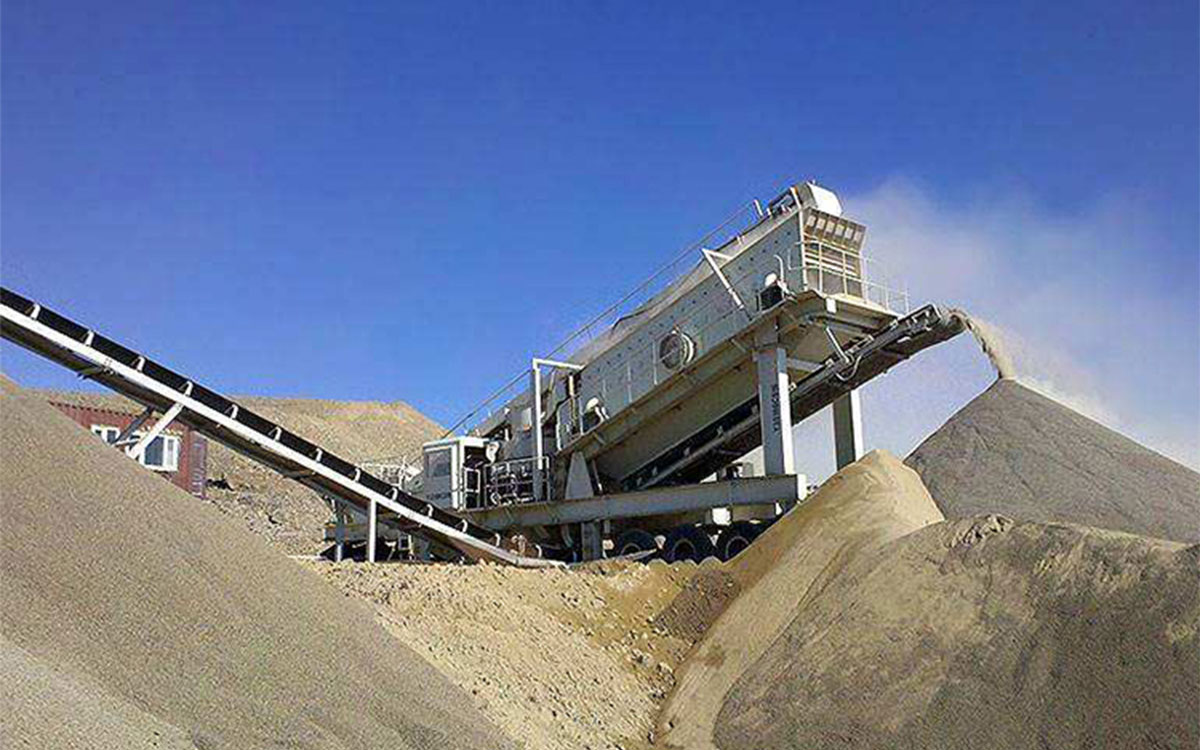
 xingaonai
xingaonai
According to the national standard, all machine-made sand and mixed sand that have been treated with soil removal are collectively referred to as artificial sand. The specific definition of machine-made sand is mechanically crushed and sieved rock particles with a particle size of less than 4.75mm, but does not include soft rock and weathered rock particles.
At present, the artificial sand is basically medium-coarse sand, the fineness modulus is between 2.6 and 3.6, the particle gradation is stable and adjustable, and it contains a certain amount of stone powder. Triangular or rectangular body with rough surface and sharp edges and corners. However, due to the different production sources of machine-made sand and the different equipment and processes for producing and processing machine-made sand, the grain type and gradation of produced machine-made sand may be very different. For example, some machine-made sand has more flaky particles, and some The particle gradation of machine-made sand is large at both ends and small in the middle, but as long as it can meet all the technical indicators of artificial sand in the national standard, it can be used in concrete and mortar. Man-made sand that does not meet the technical requirements of the national standard cannot be used, because the grain shape and gradation of machine-made sand can be adjusted and improved. In this regard, there is an essential difference between artificial sand and natural sand. The blending ratio of mixed sand will reduce its above-mentioned characteristics.
The specifications of machine-made sand are divided into four types: coarse, medium, fine and extra fine according to the fineness modulus (Mx):
The fineness modulus of coarse sand is: 3.7-3.1, the average particle size is above 0.5mm; the fineness modulus of medium sand is: 3.0-2.3, the average particle size is 0.5mm-0.35mm, the fineness modulus of fine sand is The number is: 2.2-1.6, the average particle size is 0.35mm-0.25mm; the fineness modulus of ultra-fine sand is: 1.5-0.7, the average particle size is below 0.25mm; the larger the fineness modulus, the coarser the sand; The smaller the fineness modulus, the finer the sand.

(1) Grade: The grade of machine-made sand is divided into three grades according to its skill requirements: Ⅰ, Ⅱ, and Ⅲ.
(2) Use: Type I sand is suitable for concrete with a strength grade greater than C60; Type II sand is suitable for concrete with a strength grade of C30-C60 and frost resistance, impermeability or other requirements; Type III sand is suitable for concrete with a strength grade less than C30 with construction mortar;
The particle size of machine-made sand is between 4.75-0.15mm, and there is a certain proportion limit for stone powder smaller than 0.075mm. Its particle size is divided into: 4.75, 2.36, 1.18, 0.60, 0.30, 0.15. The particle size should be continuous, and each particle size should have a certain proportion. The particle shape should be cubic as much as possible, and there are certain restrictions on the content of needle flakes.
The particle gradation of sand refers to the matching ratio of sand size particles. If it is sand of the same thickness, the gap between them will be larger; if the sand of two particle sizes is matched, the gap between them will be reduced; if the sand of three particle sizes is matched, the gap will be smaller. It can be seen that the porosity of the sand depends on the matching degree of the particle sizes of the sand materials. Well-graded sand can not only save cement, but also improve the compactness and strength of concrete and mortar.
Sand-making raw materials for machine-made sand are usually granite, basalt, river pebbles, pebbles, andesite, rhyolite, diabase, diorite, sandstone, limestone and other varieties. The machine-made sand made by it is classified according to the type of rock, and has differences in strength and use.
The mine configuration requires that the particles of the crushed materials be fine. Generally speaking, the needle-like materials are easier to be ground when they enter the mill. The requirements for building gravel are just the opposite, and there are strict proportion restrictions on needle flakes. The reason is mainly because the cube particles have edges and corners, and the edges and corners can play the role of mutual locking between particles. At the same time, cubic particles have stronger adhesion than needle-like particles and round particles, and occupy a larger surface area.
The characteristics of concrete prepared with artificial sand are: the slump decreases, and the 28d standard strength of the concrete increases; if the slump remains unchanged, the water demand increases; but when the water-cement ratio increases without increasing the cement, generally In this case, the measured strength of concrete does not decrease. Concrete proportioning design is carried out according to the law of natural sand, artificial sand requires a large amount of water, has poor workability, and is prone to bleeding, especially in low-strength concrete with less cement consumption; and if artificial sand is used according to the Features Concrete proportioning design, reasonable use of stone powder in artificial sand and adjustment of sand rate in artificial sand can completely prepare concrete with good workability. The proportioning design method of the ordinary concrete proportioning design regulation is completely applicable to artificial sand. The fineness modulus of artificial sand most suitable for preparing concrete is 2.6-3.0, and the gradation is zone 2.
Article Title: What standards does excellent machine-made sand meet?
Author: Xingaonai
Reprint address: https://www.xgncrusher.com/Industralnews/48.html

From February 24 to March 31, 2025, Xingaonai Heavy Industry will hold a large-scale promotion with the lowest price of the year.
Tel: +86 17761642222
Email: sales@xgnchina.com
Whatsapp: 8617761642222
Copyright © 2016-2030 Xingaonai Group All Rights Reserved. Xingaonai Sitemap